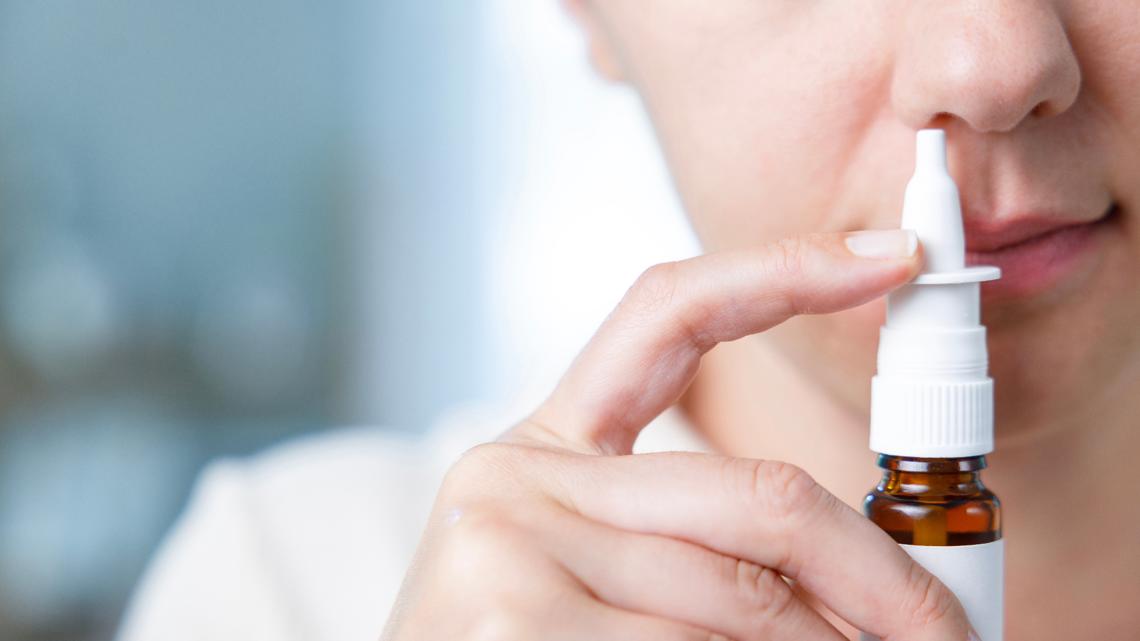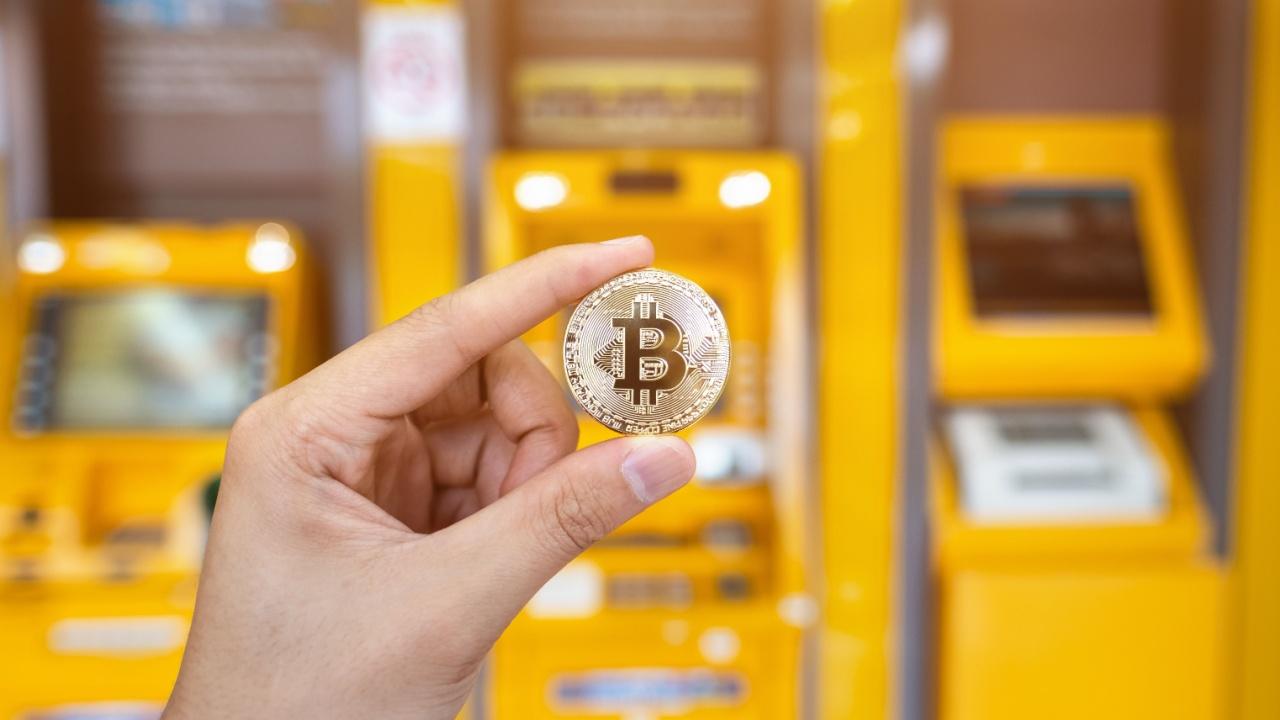CARACAS, May 26 (IPS) – This article is part of IPS coverage of Menstrual Hygiene Day celebrated on May 28.Menstrual hygiene management is elusive for millions of poor women and girls in Latin America, who suffer because their living conditions make it difficult or impossible for them to access resources and services that could make menstruation a simple normal part of life.
“When my period comes, I miss class for three or four days. My family can’t afford to buy the sanitary napkins that my sister and I need. We use cloths for the blood, although they give me an uncomfortable rash,” says Omaira*, a 15-year-old high school student.
From her low-income neighborhood of Brisas del Sur, in Ciudad Guayana, 500 kilometers southeast of Caracas, she speaks to IPS by phone: “We can’t buy pills to relieve our pain either. And my period is irregular, it doesn’t come every month, but there are no medical services here for me to go and treat that.”
In Venezuela, “one in four women does not have menstrual hygiene products and they improvise unhygienic alternatives, such as old clothes, cloths, cardboard or toilet paper to make pads that function as sanitary napkins,” activist Natasha Saturno, with the Solidarity Action NGO, tells IPS.
“The big problem with these improvised products is that they can cause, at best, discomfort and embarrassment, and at worst, infections that compromise their health,” says Saturno, director of enforceability of rights at the NGO that conducts health assistance and documentation programs and surveys.
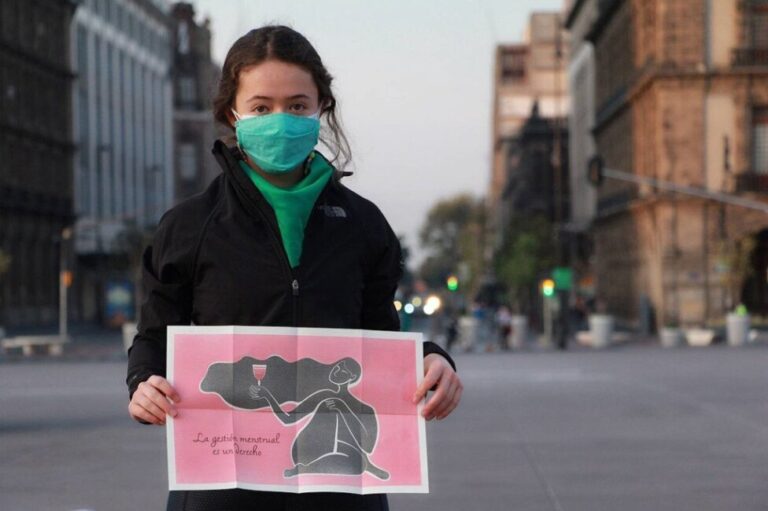
Universal problem, comprehensive approach
Is this a local, focalized problem? Not at all: “On any given day, more than 300 million women worldwide are menstruating. In total, an estimated 500 million lack access to menstrual products and adequate facilities for menstrual hygiene management (MHM),” states a World Bankstudy.
“Today more than ever we need to bring visibility to the situation of women and girls who do not have access to and education about menstrual hygiene. Communication makes the difference,” said Hugo González, representative of the United Nations Population Fund (UNFPA) in Peru.
UNFPA says there is broad agreement on what girls and women need for good menstrual health, and argues that comprehensive approaches that combine education with infrastructure and with products and efforts to combat stigma are most successful in achieving good menstrual health and hygiene.
The essential elements are: safe, acceptable, and reliable supplies to manage menstruation; privacy for changing the materials; safe and private washing facilities; and information to make appropriate decisions.
UNFPA’s theme this year for international Menstrual Hygiene Day, which is celebrated every May 28, is “Making menstruation a normal fact of life by 2030”, the target date for compliance with the Sustainable Development Goals (SDGs) adopted by the international community at the United Nations.
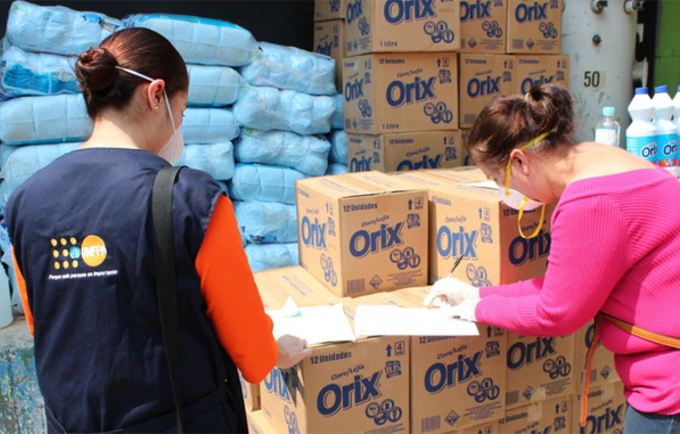
The pink tax
Nine out of 31 countries in the region consider menstrual hygiene products essential, which makes them exempt from value added tax or reduced VAT, according to the study “Sexist Taxes in Latin America” ??by Germany’s Friedrich Ebert Foundation.
After a “Tax-free Menstruation” campaign, in 2018 Colombia became the first country in the Americas to eliminate VAT – 16 percent – on menstrual hygiene products. Its neighbor Venezuela still charges 16 percent VAT, and Argentina, Chile, the Dominican Republic and Uruguay charge VAT between 18 and 22 percent on such products.
Colombia was joined by Ecuador, Guyana, Jamaica, Mexico – where street demonstrations were held against charging VAT on menstrual products – Suriname and Trinidad and Tobago. Other countries have reduced VAT, such as Costa Rica, Panama, Paraguay and Peru, while in Brazil VAT differs between states and averages 7 percent.
The so-called “pink tax” obviously affects the price of menstrual hygiene products such as disposable and reusable sanitary pads and menstrual cups, which becomes especially burdensome in countries with high inflation and depreciated currencies, such as Argentina and Venezuela.
According to the average price of the cheapest brands, ten disposable sanitary pads can cost just under a dollar in Mexico, 1.50 dollar in Argentina or Brazil, 1.60 dollar in Colombia, Peru or Venezuela, and almost two dollars in Costa Rica.
“It’s an important problem,” Saturno points out, “in a country like Venezuela, where the majority of the population lives in poverty and the minimum wage – although it has been increased with some stipends – is still just five dollars a month.”
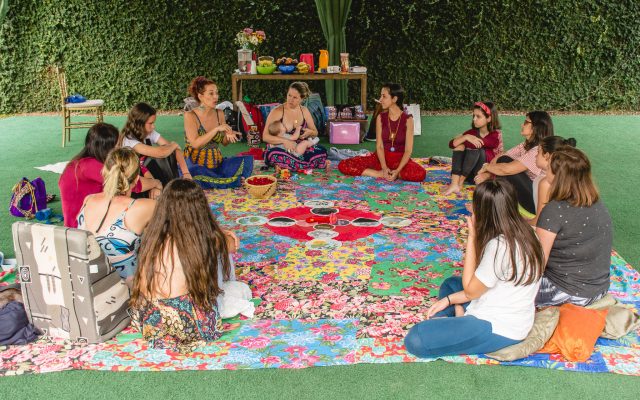
Hostile environment, scarce education
“If you often can’t buy sanitary pads, that’s the smallest problem. The worst thing is the shame you feel if you go to work and the cloth fails to keep your clothes free of blood, or if you catch an infection,” Nancy *, who at the age of 45 has been an informal sector worker in numerous occupations and trades in Caracas, told IPS.
The mother of four young people lives in Gramoven, a poor neighborhood in the northwest of the capital. Her two unmarried daughters, ages 18 and 22, have had experiences similar to Nancy’s on their way to school, in the neighborhood, on the bus, and on the subway.
“The thing is, the period is not seen as something natural, boys and men see it as something dirty, at work they sometimes do not understand that if you are in pain you have to stay at home,” said Nancy. “And when you work for yourself, you have to go out no matter what, because if you don’t go out, no money comes in.”
Saturno says that “poverty causes women and adolescent girls to miss days of secondary school or work because they do not have the supplies they need when they menstruate.”
“It becomes a vicious circle, because their academic or work performance is affected, hindering their chances of developing their full potential and earning a better income,” she adds.
But the problem “goes far beyond materials, it does not end just because someone obtains the products; it includes education and decent working conditions for women,” psychologist Carolina Ramírez, who runs the educational NGO Menstruating Princesses in the Colombian city of Medellín, tells IPS.
For this reason, “we do not use the term ‘menstrual poverty’ and speak instead of menstrual dignity, vindicating the need for society, schools, workplaces and States to promote education about menstruation and combat illiteracy in that area,” says Ramírez.
To illustrate, she mentions the widespread rejection of using tampons and cups “because of the old taboo that the vulva shouldn’t be touched, that the vagina shouldn’t be looked at,” in addition to the fact that many areas and communities in Latin American countries not only lack spaces or tools to sterilize products but often do not have clean water.
A concern raised by both Saturno and Ramírez is the great vulnerability of migrant women in the region – which has received a flood of six million people from Venezuela over the last 10 years, for example – in terms of menstrual and general health, as well as safety.
Another worrying issue is women in most Latin American prisons, which are unable to provide adequate menstrual hygiene, since they do not have access to disposable products or the possibility to sterilize reusable supplies.
Throughout the region, “greater efforts are required to break down taboos that violate fundamental rights to health, education, work, and freedom of movement, so that menstruation can be a stress-free human experience,” Ramírez says.
*Names have been changed to protect the privacy of the interviewees.
© Inter Press Service (2023) — All Rights ReservedOriginal source: Inter Press Service


